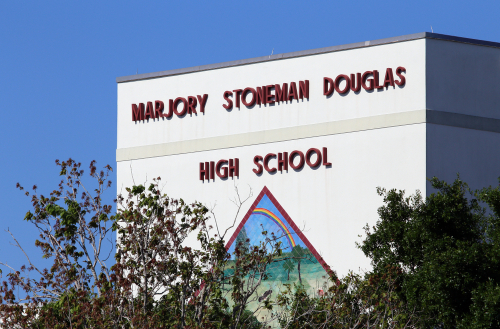School shooting survivors can't sue county officials for failing to protect them, 11th Circuit rules

Photo by Katherine Welles/Shutterstock.com.
A federal appeals court ruled Friday that 15 survivors of a 2018 mass shooting at the Marjory Stoneman Douglas High School in Parkland, Florida, can’t sue public officials for failing to protect them.
The 11th U.S. Circuit Court of Appeals at Atlanta upheld dismissal of the case in a Dec. 11 opinion.
Courthouse News Service and Education Week have coverage.
The suit had alleged that the response to the shooting was so incompetent that it violated the students’ constitutional rights.
The students had sued Broward County, Florida, and five public officials, including a school security guard and a police officer in charge of school security.
The suit claimed that the security guard allowed alleged shooter Nikolas Cruz to enter the school before the shooting began, despite recognizing him as potentially dangerous. The suit also said the police officer in charge of school security did not enter the building to try to stop the shooting.
Cruz is accused of killing 17 people and injuring 17 others. The students say they were present and suffered psychological injuries. Their suit alleged a violation of their substantive rights under the due process clause of the 14th Amendment.
The 11th Circuit said the students couldn’t sue because they weren’t in the custodial care of the defendants as in the case of incarceration or other involuntary confinement.
The presence of armed school-safety officers on the grounds, “whether by itself or in combination with truancy and compulsory attendance laws, does not restrain students’ freedom to act in a way that is comparable to incarceration or institutional confinement,” the appeals court said in an opinion by Chief Judge William Pryor.
When there is no custodial relationship, Pryor said, conduct by a public official doesn’t rise to the level of a substantive due process violation unless the act is arbitrary or “shocks the conscience.”
The Parkland shooting called for split-second judgments, and in that situation, an official’s conduct doesn’t shock the conscience unless it stems from a “purpose to cause harm,” Pryor wrote.
The students had alleged deliberate indifference but did not claim that the officials had a harmful purpose.
Pryor was once on President Donald’s short list of potential U.S. Supreme Court nominees.
Hat tip to How Appealing.
See also:
ABAJournal.com: “Public defenders ask to step down from Parkland shooting case”
ABAJournal.com: “From Columbine to Parkland: How have school shootings changed us?”
ABAJournal.com: “Judge rules school, sheriff’s office had ‘no legal duty’ to protect students in mass shooting”
ABAJournal.com: “Ex-deputy faces 11 charges for alleged failure to protect students during school mass shooting”
Write a letter to the editor, share a story tip or update, or report an error.


